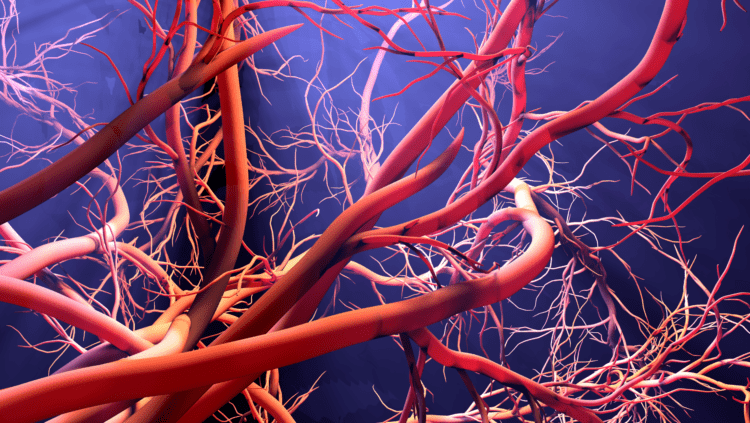Peripheral arterial disease (PAD) is a serious health condition that affects the circulation of blood around the body. It can lead to a range of painful symptoms, and if left untreated, can even be life-threatening. Fortunately, there are a variety of natural herbs that have been found to help improve blood flow, and reduce the risk of PAD. In this blog post, we’ll look at some of the best herbs for peripheral arterial disease, and explore how they can be used to boost your health.
Understanding Peripheral Arterial Disease
Peripheral Arterial Disease (PAD) is a condition that affects the circulation of blood in the body, particularly in the extremities. It occurs when fatty deposits build up in the arteries, causing them to become narrow and restricting blood flow. This can lead to a range of symptoms, including leg pain, cramping, numbness, and even non-healing wounds.
PAD is a serious health condition that should not be ignored. If left untreated, it can increase the risk of heart attack, stroke, and even amputation. It is estimated that over 200 million people worldwide are affected by PAD, making it a global health concern.
Understanding the causes and risk factors for PAD is essential in order to prevent and manage the condition effectively. Certain factors, such as smoking, diabetes, high blood pressure, and high cholesterol, can increase the risk of developing PAD. Additionally, advancing age and a family history of the disease are also risk factors to be aware of.
Natural Herbs for Boosting Blood Flow:
One of the key aspects of managing peripheral arterial disease (PAD) is improving blood flow. Fortunately, nature has provided us with a variety of herbs that can help enhance circulation. These herbs have been found to have vasodilatory properties, meaning they can widen blood vessels and improve the flow of blood throughout the body.
Ginkgo biloba is one such herb that has been widely studied for its ability to boost blood flow. It works by improving the flexibility of blood vessels and reducing the stickiness of blood platelets, thereby promoting healthy circulation.
Another herb that has shown promise in enhancing blood flow is garlic. Garlic contains compounds that can help relax blood vessels and reduce inflammation, which in turn improves blood flow.
Hawthorn is another herb that has been used for centuries to support cardiovascular health. It has been found to dilate blood vessels and improve blood flow, making it a valuable addition to any natural treatment plan for PAD.
Other herbs that may be beneficial in boosting blood flow include ginger, cayenne pepper, and horse chestnut. These herbs can be used in various forms, such as in teas, tinctures, or as a seasoning in cooking.
Incorporating these herbs into your daily routine can be as simple as adding them to your meals or enjoying a cup of herbal tea. However, it is important to consult with a healthcare professional before starting any herbal regimen, especially if you are taking medications or have underlying health conditions.
How to Incorporate These Herbs into Your Diet:
Now that we’ve explored the natural herbs that can help boost blood flow and reduce the risk of peripheral arterial disease (PAD), let’s talk about how to incorporate these herbs into your diet. Thankfully, there are several easy and delicious ways to enjoy the benefits of these herbs.
Firstly, consider adding Ginkgo biloba to your daily routine. You can find Ginkgo biloba supplements at your local health shop or pharmacy. Alternatively, you can brew a cup of Ginkgo biloba tea and enjoy it as a soothing beverage.
Next, let’s talk about garlic. This versatile herb can be added to a variety of dishes, including soups, stews, stir-fries, and salad dressings. Simply chop or crush some garlic cloves and sauté them with your favourite ingredients to add a burst of flavour and improve your circulation at the same time.
Hawthorn can be consumed as a tea or tincture, which can be found at health shops or online. Alternatively, you can incorporate hawthorn berries into your diet by adding them to smoothies or making a delicious hawthorn jam.
Ginger and cayenne pepper can be used in cooking to add a spicy kick to your meals. Try incorporating these herbs into marinades, sauces, or spice rubs for meats and vegetables. You can also steep ginger in hot water to make a soothing ginger tea.
Lastly, consider adding horse chestnut to your routine. This herb can be found in supplement form or as a topical cream. If you choose to use the cream, simply massage it onto your legs to improve circulation and alleviate discomfort.
Lifestyle Changes for Preventing PAD:
Preventing peripheral arterial disease (PAD) goes beyond just incorporating natural herbs into your diet. Lifestyle changes can play a crucial role in reducing the risk of PAD and improving overall cardiovascular health. Here are some lifestyle changes that you can consider:
- Quit Smoking: Smoking is a major risk factor for PAD as it constricts blood vessels and reduces circulation. Quitting smoking can greatly improve your chances of preventing PAD and other cardiovascular diseases.
- Regular Exercise: Engaging in regular physical activity can improve blood flow and strengthen your cardiovascular system. Aim for at least 30 minutes of moderate-intensity exercise, such as brisk walking or cycling, on most days of the week.
- Maintain a Healthy Weight: Obesity and being overweight can increase the risk of PAD. By adopting a balanced diet and incorporating regular exercise, you can maintain a healthy weight and reduce the risk of developing PAD.
- Manage Blood Pressure and Cholesterol Levels: High blood pressure and high cholesterol can contribute to the development of PAD. Work with your healthcare provider to manage these conditions through medication, lifestyle changes, and regular monitoring.
- Control Diabetes: If you have diabetes, it’s essential to manage your blood sugar levels effectively. High blood sugar levels can damage blood vessels and increase the risk of PAD. Follow a healthy diet, take medication as prescribed, and monitor your blood sugar regularly.
- Reduce Stress: Chronic stress can negatively impact your cardiovascular health. Practise stress-management techniques such as meditation, deep breathing exercises, or engaging in hobbies to reduce stress levels.










